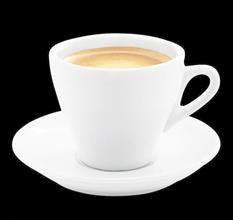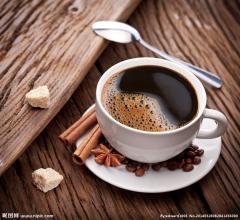Atlanta, Jamaica, one of the world's smaller coffee producing regions
Jamaica is one of the small coffee producing regions in the world, with an annual harvest of about 40000 bags-60 kg / sack (most of the Jamaican Blue Mountain coffee is actually shipped away in 70 kg barrels, they are the last countries to still use this traditional packaging method, but they produce 60 kg/ sacks, as that is the international standard for measuring coffee production). Compare Brazil, the world's largest exporter of coffee, with an annual production of 30000000 bags to 60 kg per sack.
Before 2008, the Japanese continued to invest heavily in the entire industry chain of Jamaican Blue Mountain Coffee and promised to underwrite 90% of its annual production. As a result, the rest of the world has only a 10% quota, resulting in a trend that demand has been falling short of supply, and prices have gone up.
The unique growth conditions give birth to the unique flavor of Blue Mountain Coffee and make it one of the "gourmet Coffee". 100% of the world's pure Blue Mountain Coffee refers to a specific range of Blue Mountain Coffee in eastern Jamaica, and every step in its planting and processing has been subject to stringent standards of quality management by the Jamaica Coffee Industry Authority. can be proved to be "pure Jamaican Blue Mountain Coffee".
The special conditions such as abundant rainfall, year-round fog and low temperature, average temperature of about 20 ℃ and fertile new volcanic soil constitute a good growing environment for Blue Mountain Coffee. Located at a high altitude of 2200 to 6000 feet, it creates a unique slightly sour taste, but it is not at all exciting or uncomfortable. It takes about 2 years for seedlings to be cultivated in the nursery. Organic fertilizers are used during their growth, and they are harvested one grain at a time during harvest. All processing, baking and packaging processes must meet the high standards set by the Jamaica Coffee Industry Authority.
Typica with low quantity and good quality is the best variety of Arabica. Most coffee-producing countries are only willing to grow other varieties with high yield but poor quality, but Jamaica gives priority to quality, preferring to sacrifice the production of Blue Mountain coffee in exchange for the best quality of Blue Mountain coffee.
100% pure Jamaican Blue Mountain Coffee, with its strong and attractive elegance, is indeed unmatched by other coffees. When it goes through the steps of grinding, brewing and tasting, it gives full play to its flavor, and it is difficult not to get drunk with the aroma of coffee around. Its caffeine content is very low, only about half of other varieties of coffee, in line with modern health requirements.
100% pure Jamaican Blue Mountain Coffee is a perfect and balanced blend of unique sour, bitter, sweet and mellow taste, coupled with a rich and unique aroma, no wonder coffee lovers all over the world are fascinated by it! High-altitude origin makes it with a little high-quality sour taste, a very small degree of bitterness is short and does not retain in the mouth, into the throat into a slightly sweet feeling, mellow throat rhyme is still more meaningful.
In 1728, coffee was first introduced to Jamaica. Due to the suitable soil, climate, light and other conditions in Jamaica, the quality of coffee was excellent, and the cultivation gradually expanded from St. Andrews to other areas.

Important Notice :
前街咖啡 FrontStreet Coffee has moved to new addredd:
FrontStreet Coffee Address: 315,Donghua East Road,GuangZhou
Tel:020 38364473
- Prev

Indonesia Manning Coffee Bean Flavor taste Manor production area introduction to Fuyin Manor Indonesian coffee beans
Mantenin's leaping acid mixes with the richest aroma, making your relaxed body manning coffee lively in a mild fragrance, and its outstanding taste captivates many suitors. In the 17th century, the Dutch introduced Arabica seedlings to Ceylon (present-day Sri Lanka) and Indonesia. In 1877, a large-scale disaster struck Indonesia
- Next

Introduction of San Pedro Manor in Puerto Rico Coffee Bean Flavor area
Start officially defaulting. Its embarrassing situation originated from the Spanish-American War in 1898, when Spain surrendered Puerto Rico to the United States, making it a commonwealth of the United States in the Caribbean. Unlike the 50 local states, some federal benefits are not available to it, but rules and regulations must be observed. Puerto Rico had four referendums, and finally
Related
- Does Rose Summer choose Blue, Green or Red? Detailed explanation of Rose Summer Coffee plots and Classification in Panamanian Jade Manor
- What is the difference between the origin, producing area, processing plant, cooperative and manor of coffee beans?
- How fine does the espresso powder fit? how to grind the espresso?
- Sca coffee roasting degree color card coffee roasting degree 8 roasting color values what do you mean?
- The practice of lattes: how to make lattes at home
- Introduction to Indonesian Fine Coffee beans-- Java Coffee producing area of Indonesian Arabica Coffee
- How much will the flavor of light and medium roasted rose summer be expressed? What baking level is rose summer suitable for?
- Introduction to the characteristics of washing, sun-drying or wet-planing coffee commonly used in Mantenin, Indonesia
- Price characteristics of Arabica Coffee Bean Starbucks introduction to Manning Coffee Bean Taste producing area Variety Manor
- What is the authentic Yega flavor? What are the flavor characteristics of the really excellent Yejasuffi coffee beans?

